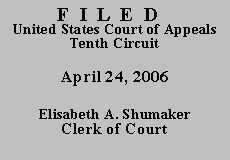

§ 1291, deny a COA, and dismiss the appeal.
Where, as here, a district court denies a habeas petition on procedural grounds without reaching the underlying constitutional claims, a COA should issue if the petitioner demonstrates "that jurists of reason would find it debatable whether the petition states a valid claim of the denial of a constitutional right, and that jurists of reason would find it debatable whether the district court was correct in its procedural ruling." Slack v. McDaniel, 529 U.S. 473, 478 (2000).
Under the Antiterrorism and Effective Death Penalty Act of 1996 (AEDPA), the one-year period of limitations generally begins running from "the date on which the judgment became final by the conclusion of direct review or the expiration of the time for seeking such review." 28 U.S.C. § 2244(d)(1)(A). The one-year limitations period is tolled while a defendant pursues state post-conviction relief, see 28 U.S.C. § 2244(d)(2), and we have held that the one-year limitations period "may be subject to equitable tolling." Miller v. Marr, 141 F.3d 976, 978 (10th Cir. 1998). But it is well established that equitable tolling of
§ 2244(d)(1)'s one-year statute of limitations is available "only in rare and exceptional circumstances." York v. Galetka, 314 F.3d 522, 527 (10th Cir. 2003). For instance, "equitable tolling would be appropriate . . . when a prisoner is actually innocent" or "when an adversary's conductor other uncontrollable circumstancesprevents a prisoner from timely filing." Gibson v. Klinger, 232 F.3d 799, 808 (10th Cir. 2000).
On April 17, 2001, in the District Court of Oklahoma County, Washington
pled guilty to possession of a controlled dangerous substance (cocaine) after
former conviction of a felony. Washington received an eight-year suspended
sentence. On June 11, 2002, Washington pled guilty to the State's application to
revoke his suspended sentence. That same day, he also entered a plea of guilty
for attempted robbery in the first degree after former conviction of a felony. The
Oklahoma state court sentenced Washington to three years of imprisonment for
his possession of cocaine conviction, to be served consecutively to his twelve-year sentence for
armed robbery. The court also imposed a five-year suspended
sentence for Washington's possession of cocain conviction, to be served
consecutively to his sentence for armed robbery. Because Washington did not
seek to withdraw his guilty plea or file a direct appeal, Washington's conviction
for possession of cocaine became final on June 21, 2002, ten days after the entry
of judgment and sentence. See Okla. Ct. Crim. App. R. 4.2(A); Okla. Stat. tit.
22. § 1051. As a result, Washington had until June 21, 2003, to timely file a
federal habeas action. Washington, however, filed his federal habeas corpus
petition on June 17, 2005. Although the record reflects that Washington filed an
application for post-conviction relief in the Oklahoma state courts on December
21, 2004, this was well after the one-year limitations period had expired. Thus,
the pendency of that state post-conviction proceeding could not have served to
toll the federal limitations period. See Fisher v. Gibson, 262 F.3d 1135,
1142-43
(10th Cir. 2001). After reviewing the record, we conclude that the district court
correctly dismissed Washington's habeas petition as untimely. We also agree
with the district court that Washington failed to assert any grounds that warrant
equitable tolling.
The application for a COA is DENIED and the appeal is DISMISSED.
Washington's motion to proceed on appeal in forma pauperis is DENIED.
Entered for the Court
Mary Beck Briscoe
Circuit Judge
*. This order is not binding precedent, except under the doctrines of law of the case, res judicata, and collateral estoppel.